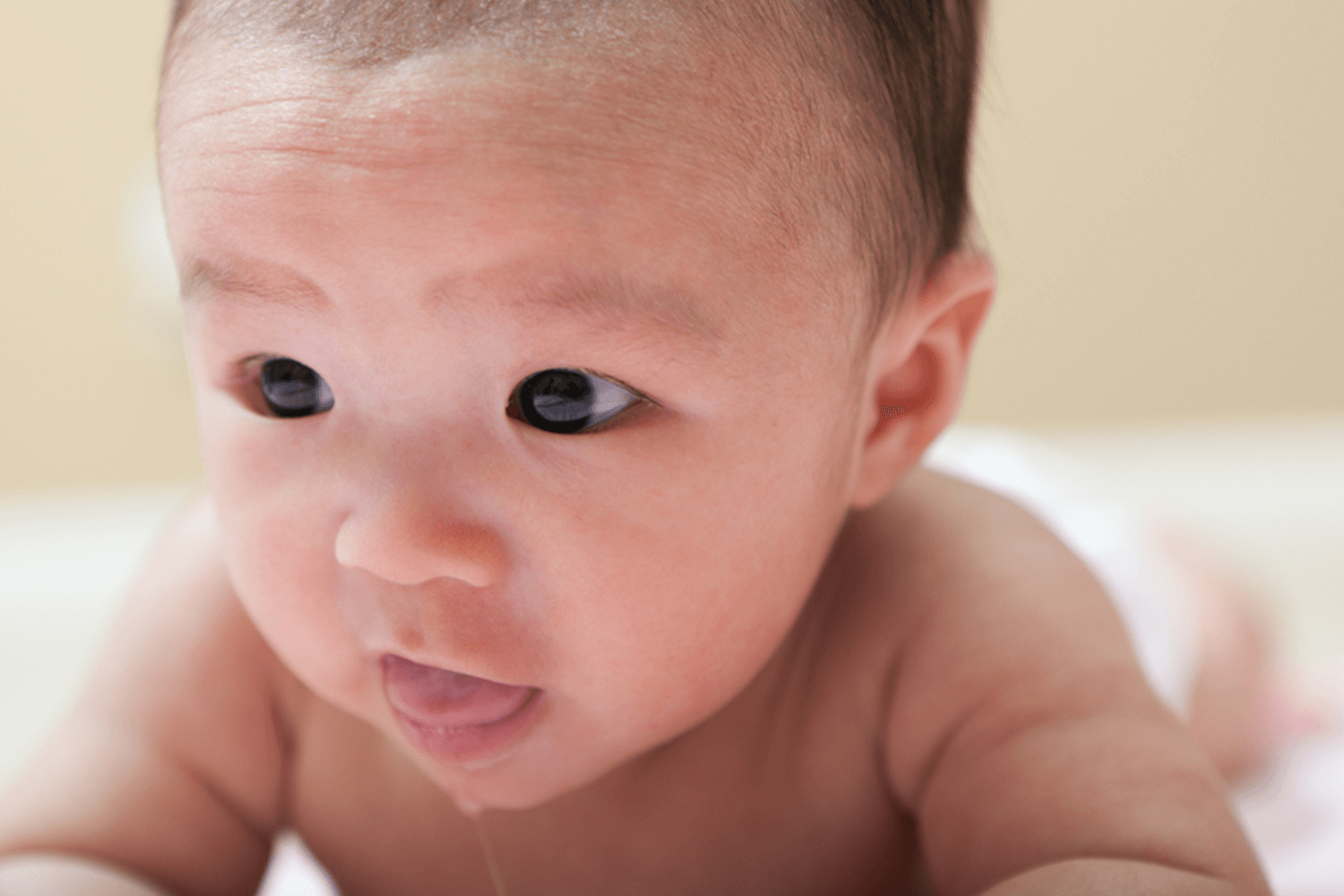Baby Drooling? 5 Revealing Things About Your (Adorable) Drooling Monster

1. I swear the drool started coming out of my baby overnight. What gives?
Researchers believe a baby’s excess drool production is connected to a developing digestive system—so the appearance of drool is likely a sign that your baby’s digestive system is in full development mode. Great! Saliva is vital for digestion—which is why your mouth waters when you smell a delicious dinner on the stove. While drool can be, well, wet, that saliva protects your babies’ gut and may also protect her toys and other objects with disease-preventing proteins and antibodies. Cool, right?
2. Why does so much drool fall out of my baby’s mouth and onto her shirt?
It’s a matter of muscle. Saliva glands in your mouth produce around 2-4 pints of saliva every day: Adults don’t notice as much because we’re pros at keeping accumulation down by swallowing (and a row of mature teeth act like a dam to keep the flow in). Babies, however, don’t develop full control over their swallowing muscles and the muscles around the mouth until they are between 18 and 24 months. Hence: baby = drool faucet.
Everyone Belongs In Our Circle
At KinderCare, we’re committed to building warm, welcoming and supportive classrooms for children of all abilities, backgrounds and experiences.
Find a center near you3. I heard an increase in drool means my baby’s teeth are on the way.
According to some, drooling is considered a classic sign that your baby’s teeth are getting ready to push through the gums. But there’s not necessarily a direct connection. While it’s true that drooling is very common for children around 2-3 months old, and typically lasts until a child reaches 12-15 months-s (roughly the same age that teething begins) drooling merely means your baby’s salivary glands are starting to fire up after not being needed as much when eating easy-to-digest milk. When your baby develops motor skills like chewing on her hands, motor receptors in her mouth send signals to the brain to initiate saliva production, a sign that she may be ready to eat. Basically, your baby develops the muscles and digestive saliva just as soon as she needs it to eat solid foods. Amazing!
4. She goes through 8 bibs a day or more. Seriously. Is there anything I can do to stem the drool flow?
While carrying around so many drool-catching bibs may take up more real-estate in your diaper bag, it’s important to remember that drooling, and even an abundance of drool, can be healthy. In his blog on excessive drooling, Dr. William Sears notes that “saliva bathes the teeth and gums, washing away accumulated food and bacteria.” It helps babies break down food, and does all kinds of good things for the gut. The drool fest should end when all of his teeth are in.
A Lifetime Of Confidence Starts Here
Our teachers help every child build the confidence they need to try new things and explore the world around them.
Search for a center near you5. The drool was alright, but the resulting rash has me worried. What can I do?
Sometimes drool can lead to a rash around the mouth, owing to irritation that arises from excess moisture. To keep drool from getting in contact with baby’s skin, do wipe the drool off often with a soft, gently cloth. Because babies drool at night as well, before bed time, apply an moisture barrier ointment around his mouth and cheeks: Your pediatrician can guide you to the creams that are best for your baby, depending on his age.





